What is social proof?
The use of social proof in website design has its roots in social psychology. The concept of social proof says that people are more likely to do business with you if there are clear indicators that other people are also doing business with you (and that doing business with you is safe).
There are a variety of different types of social proof you can place on your website or landing page to increase conversions.
1. Customer Testimonials
Testimonials are a very strong form of social proof because they clearly say to the visitor “a person like you is using my product/service successfully.” When using a testimonial as social proof be sure to include the person’s name in the case studies and also a picture if you can.
If your customer(s) have privacy concerns regarding using their full name on your site, you can always do shorten the names down to something like “Bob A.” or “B. Applesmith.”
If your customer(s) consent, it is also a nice touch to be able to add a picture of the person next to the testimonial and this would look like expert social proof. Potential customers would love to read insights into their experience with your brand.
If your testimonial is from a company (because you’re a B2B brand), use the company logo in place of a headshot of the person. This can be useful for product reviews too.
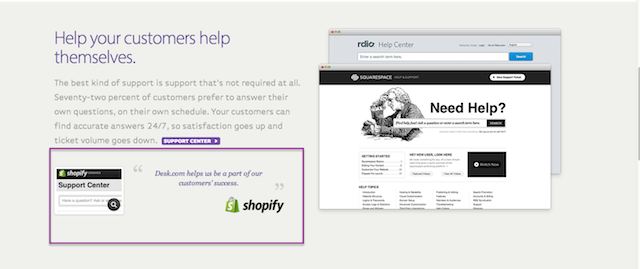
2. Trust Badges
Trust badges like those from “TRUSTe”, “McAfee”, “VeriSign” and the “Better Business Bureau” are really important for e-commerce sites. They indicate to visitors that online transactions made on your site are safe and secure. Trust badges can also indicate that you are an industry expert.
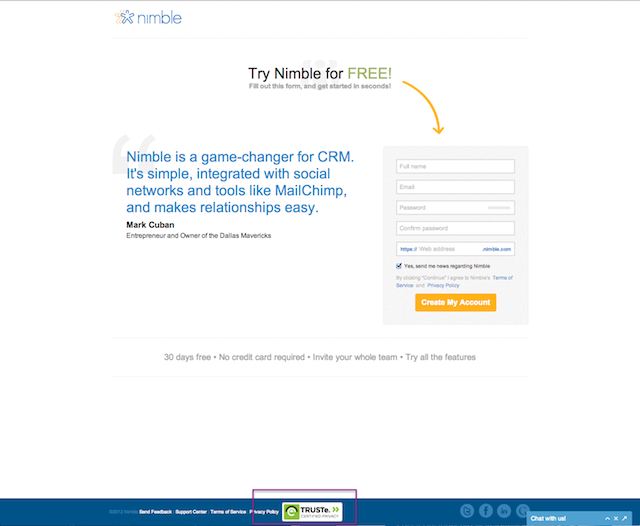
Many people today still distrust websites and shy away from online spending because of this. Trust badges help calm those fears and encourage spending.
3. Press Logos
If your brand is not very well known, displaying press logos on your website helps build up credibility for your company. This is especially true (and powerful) if those press logos are from trusted news sources like the New York Times, Wall Street Journal or CNN.
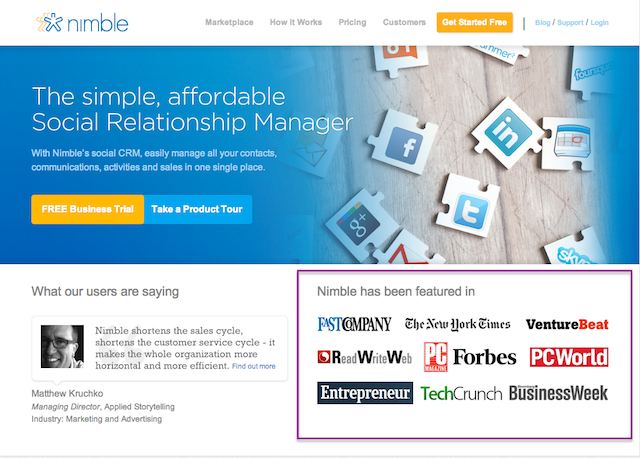
Trusted online news sources also work well and include sites like TechCrunch, Mashable and BusinessInsider.
4. Customer Logos
If you’re in the B2B space, displaying well known customer logos is a great way to instantly boost your credibility. If you count WalMart, Disney, Facebook, Pepsi or other well known brands as your users, let the world know (provided you get approval from the company’s first). This can also be considered as influencer marketing.
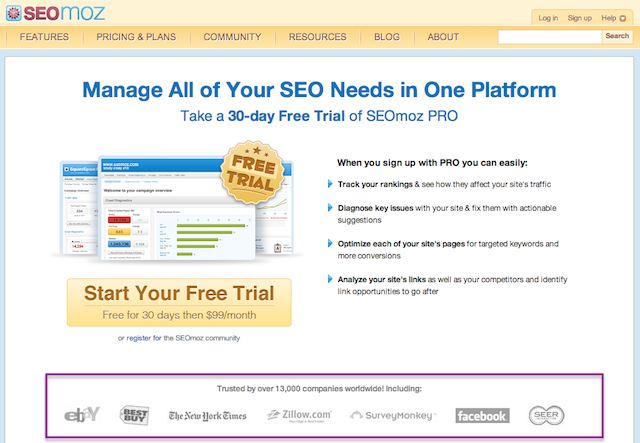
Displaying customer logos lets other company reps know that your product or service is good enough for these big companies and therefore is likely good enough for their company as well and this can show the power of social proof. Or at least your product/service is worth exploring more to see why these companies trust you.
5. Size of social network
If your social network channel such as Facebook community and/or Twitter community is large (or at least larger than your competitors), displaying that number through a widget could easily boost your credibility. Again, it shows that a lot of people like and trust your brand.
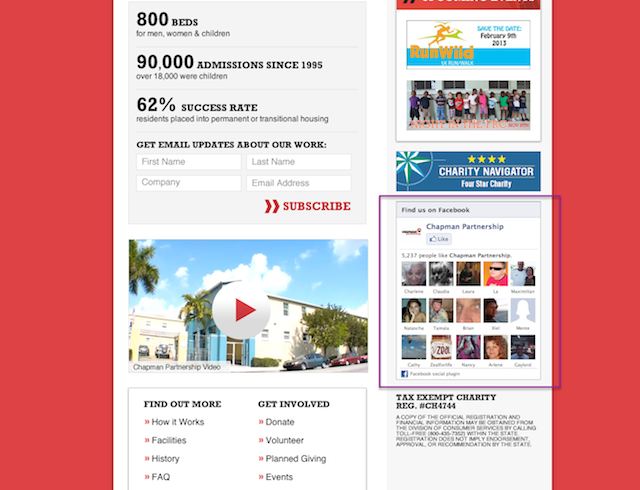
You probably don’t want to place social widgets on your landing page(s) since they can be distracting and introduce a competing call-to-action. However, social widgets are great when used on Websites – especially the homepage and about page.
6. Award Badges
If you have won any individual or company awards you should showcase the award badges on your website. These indicate to visitors that you are exceptional at what you do – better than others in your industry who have not won awards.
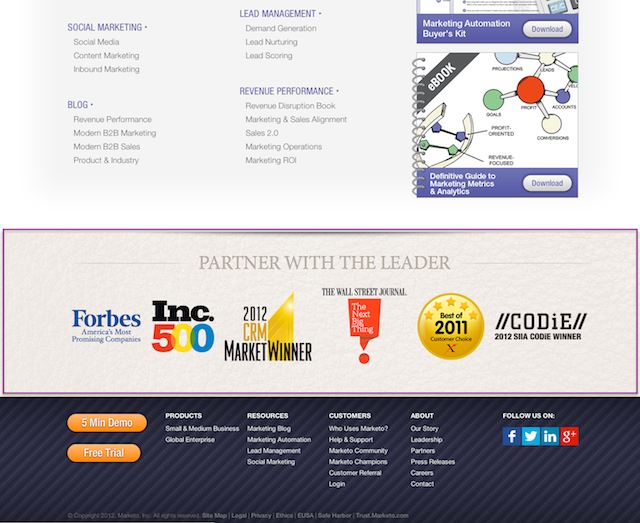
What types of social proof are you using on your website to increase conversions? If you’re not using any, be sure to start incorporating one or more of these elements onto your website.
Social Proof: The Word-of-Mouth of the Future
Social proof is the new word of mouth for e-commerce websites. Once upon a time, customers bought products at their local stores and then talked to friends about their likes and dislikes.
Word of mouth becomes more difficult to attain when you are dealing with online customers in far-flung areas of the world.
However, social proof allows people to see that your products and the general shopping experience at your e-commerce website are liked by others, replacing the more traditional word of mouth advertising.
Here are a few ways of making sure that your website visitors are exposed to social proof of your high quality.
- Allow users to ‘Like’ or otherwise approve of your website and products on social networking sites. It is usually easy to install a simple button that does not detract from sales or conversions. As a bonus, this usually comes up on the customer’s social networking page, giving you a little extra positive exposure.
- Don’t be afraid to brag. If you have reached a landmark number of issues or have high scores in follow-up surveys, advertise this in a prominent part of your landing pages. People assume that a crowd of happy customers cannot be wrong.
- Seek endorsements. Contribute products to popular review sites, magazines or whatever media deals specifically with your product category. If you get a positive review, mention it and even link to it wherever appropriate. Like social media, this will give you additional publicity in addition to street credit.
- Seek industry awards. People tend to give high value to awards and other third-party organizational endorsements because they are difficult to get. The downside, of course, is that they are indeed difficult to get. Nonetheless, it takes only a few minutes to nominate yourself… so go for it!
- Use social proof in product recommendations. Think of Amazon’s, “People who bought this product also bought X.” Customers are less likely to view this as an upsell than other types of recommendation. In addition, there is a good chance that they will add Product X to their cart. This kind of recommendation feels friendlier and more authentic.
- Use advanced personalization where positive. One of the advantages of being an ecommerce website owner is that you can immediately tailor the shopping experience to the demographic of the person doing the shopping, especially if that person has a profile with your business. Different types of social proof work best for different personas. Your job is to begin experimenting and develop a personalization plan that is perfect for your customers.
- Place customer favorites on the home page. If an item is being bought more than others, make this clear. Most people like to have the ‘latest thing’ and will consider a popular item more valuable than others.
- Allow product reviews. These are an important part of your product pages, because they allow viewers to virtually interact with other buyers of the same product. Product reviews from customers are more important to your ecommerce website visitors than any other recommendation.
